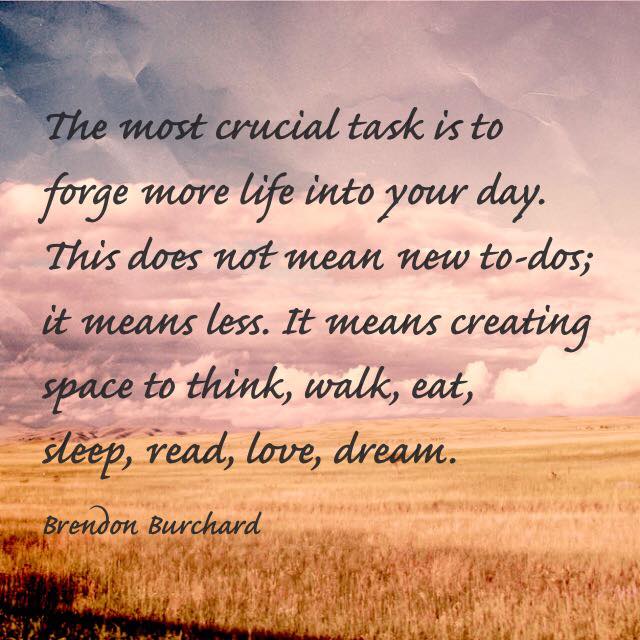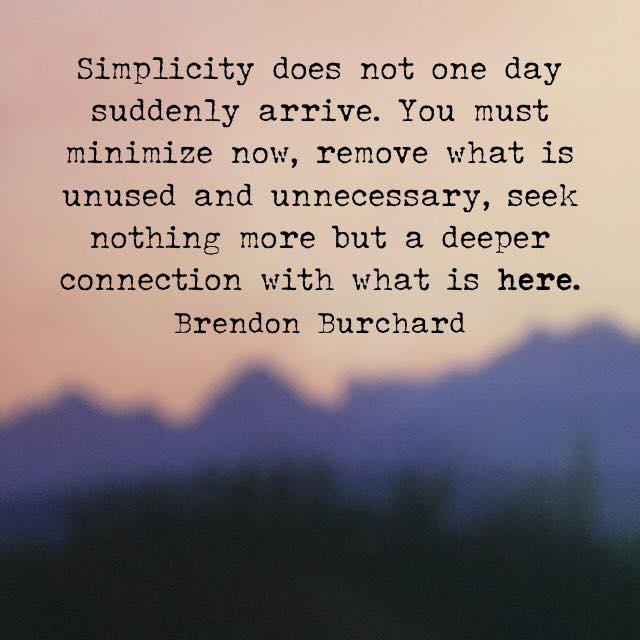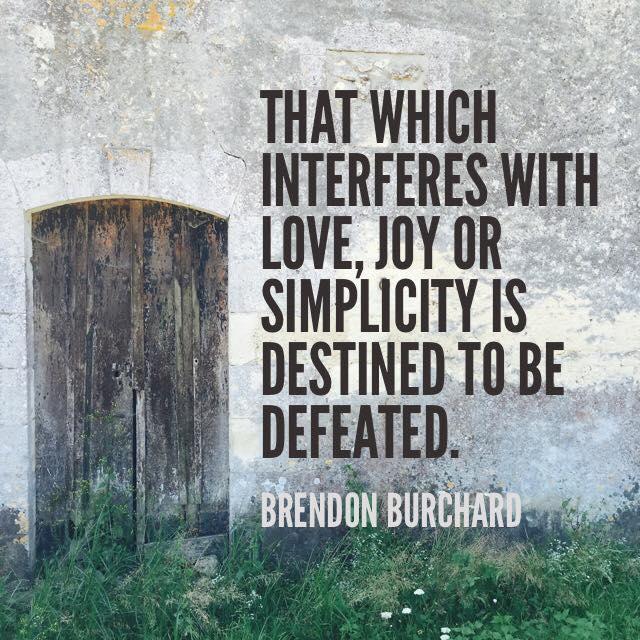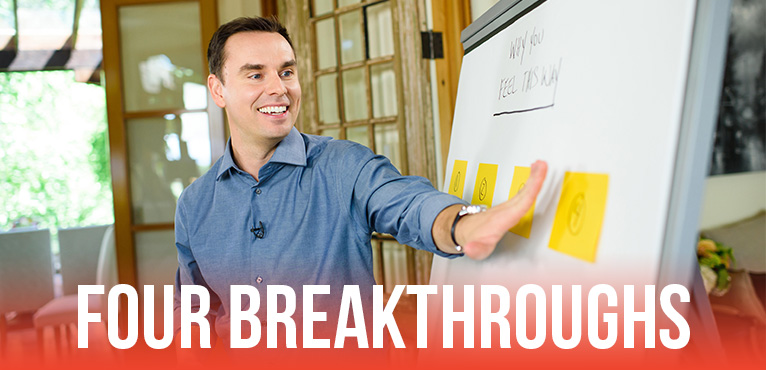Summary
Are you always helping others at the cost of your own well-being? If you are giving and not getting enough back, it’s time to find balance. Here’s how:
Clarify your needs. Keep a list of things you want from life. Know what you really value and live it. When you are clear about what’s truly important to you, then you won’t let your day be driven by randomness. Most of the time we experience burnout is because we say yes to too many random requests without gauging what matters. It’s time to learn to prioritize what matters most.
Know where you add value (and where it matters!) When you are a high performer, you are constantly being asked for help, because you’re good. If you say yes to everything, though, you end up decreasing your overall contributions. So, what are the ways you add the most value? What do you do that no one else can? Focus your giving and attention there.
Say no, say no early, say no often. When you get requests that are not aligned with your priorities or where you can add true value, then the immediate answer should be NO. Unless you or the other party can justify and convince you that this is where you are needed and can add unique value the answer is no.
Have a weekly honesty session. Every week, choose a day to reflect on whether or not you protected your boundaries. By actually tracking it, you start to see a pattern of where you compromise. You also get more committed to protecting your time and sanity. Be honest about what you’re doing, the value it’s adding, how much passion you feel towards it, and what you want in life. Then you’ll feel more of #thechargedlife.
[Like this episode? Please share it for me? I’m able to keep this blog and all my podcasts and videos ad-free and sponsor-free ONLY because you share my work! Want more in-depth training? Check out my monthly Success Accelerator. ]



Transcription
Are you the helpful burnout? The person who’s always saying, “Hey, let me in. Let me help. Let me add value. Let me be of service to other people.” But sometimes, you find yourself compromising your own well-being, your own sanity, your own agenda, your own life?
Do you feel like, you go from relationship to relationship and you’re the most helpful one in it and you don’t get enough back? Or sometimes, you’re working and you’re just giving and giving and giving and you feel like you fall off any self-care. You fall off your own routines and you feel like you’re blending those boundaries too much:
- Between life
- Between work
- Between relationships
Where you just go, “I’m losing myself here a little bit in the mix.”
First off, don’t worry. Happens for all of us at some point because if you are a person of service, if you are a giver, if you have high degrees of kindness and compassion, wanting to serve and give others is a great compelling need and A) don’t stop doing that.
See, people think they have to stop doing that and then they get themselves in trouble because in their heart it says, “I want to give more.” So, it’s not about stopping that, it’s about achieving a greater level of balance.
Now, everyone today says, “Well Brendon, you know life balance isn’t possible. You don’t understand.” I go, “No, no, no, life balance is possible.” The only reason people believe it’s not is because so many people have failed at it that it has become a cultural meme to say, “It’s not possible.”
But believe me, millions of people have found balance and they’re doing just fine. May be you just don’t hear about them as much because they’re not out there complaining. But you can do it. You can find that secret magic of how much can I give without burning out my life or taking away from my own needs. So, let’s talk through that.
First big idea is: You need to make sure you are clear on what your needs are. Like what really are your needs and your priorities that you don’t want to compromise or fall out of balance from? Lots of people find themselves completely out of balance or burned out and they go like, “I don’t know why.”
And I’ll say, “Well, what did you want?” And they’re not sure.
It’s just like goals, right? You ask people, “What is it you don’t want to deal with anymore in life?” And they have a big long list.
But then you say, “What do you want of life?”
And they go, “Uh, I don’t know.”
And so, if you’re not clear on what you do want
- For your own practices,
- For your own habits,
- For your own well-being.
If there isn’t a list somewhere that says, “This is kind of what I want my life to be like, my days to be like. These are habits and routines that I value, that I prioritize, that are big and important to me.”
If you don’t have that list written down somewhere then it’s not real and your day will be continued to be defined by randomness, not routine. The more it’s driven by randomness, the more it is you’ll blend and bleed over the lines between work, career, serving others, serving your own well-being. So, make sure it’s written down somewhere, “These are the things that are important to me.”
Second, you need to know where you really add value and where it is that you add value that matters because I bet a lot of people ask you for a lot of things. I teach a program called High Performance Academy and as we talk to high performers, high level achievers, they’re always the ones who get asked to do the most because they’re good.
And when you get someone who is good, they’re constantly overwhelmed with requests so it’s important for that person who is good, the achiever to know,
- What’s your role?
- Where do you add value the most?
And be really clear on that. Like, where do you really add value the most? And all the other things that come along, you say, “I can’t focus on those things. I’m going to focus on these big moving pieces that I know I add the most value to and these other pieces that’s not for me.”
It’s very, very important because just like not having a list of what’s important to you, not having knowledge of what you’re best at makes you do everything else and now it’s where you get the very senior executive doing tiny little admin things versus focusing on their unique ability or their strengths.
Third big idea: Say no, say no early, say no often. Once you know those first two things, anything that buts up against them that’s going to mess up with your values, your priorities, your routines, your habits, or is not going to contribute to the value you really add, that’s a NO.
It’s got to be an automatic NO, a first time NO and immediate NO. Don’t trudge around and going, “Ah, you know, I’ll tell them someday I don’t want to do this.” It’s no because the way to set boundaries is with a no. It’s not with a, “Yes” to “And then I’ll explain later”.
It’s you teaching yourself and giving yourself permission to value yourself and value the value that you’re capable of adding by saying no to everything else that comes your way.
Look, if you say no and the person who you’re trying to serve or the company you’re trying to serve or the cause or the mission or the relationship that you’re trying to serve doesn’t like it and they can make a great case why that you could figure out a way to do it well and do it without distraction to your life and still add value, great. But if they can’t make the case, it stays a no.
I always tell people, “The higher levels that you get in achievement and success and fulfilment in your life, the more you should say no.” At the beginning, when you’re just starting out and you’re new to any opportunity, everything is a yes because
- You’re trying to learn
- You’re trying to acquire skill
- You’re trying to make money
But once you’ve learned, you’ve acquired some skill, you made money, more people rely on you, more people ask for things from you. The automatic first answer should almost always be no until you can justify it, until they can justify it.
Make yourself or make other people make the case why you should make yes to things and if you can’t make it and they can’t make it, it’s a no. Trust me, this will save your day.
And last, little simple one: Have a weekly honesty session. My sessions are on Sunday. Every Sunday, I sit and I journal a lot about my life and my week. And one of the honesty things is, “Did I protect my boundaries?” It’s a question I ask myself every Sunday. “Did I protect my boundaries this week?”
And I’ll just think about, “Where did I felt like I just kind of went over or I extended myself? I didn’t recover. I didn’t take time. I didn’t complete that routine, that habit, that project that was important to me.” And by having a weekly check in, it makes you more focused and diligent when those things come up.
The reason a lot of people hit burnout isn’t because it’s a sudden thing. It happens because it’s week after week after week after week after week after week after week of compromising yourself. So, if you’re checking in each week, it’s more likely that you’re going to stop that and say, “Oh my gosh, look how poorly I managed this week. Look how poorly I failed to … I didn’t say no. Look how many places I took on new things today or this week that I shouldn’t have.”
You need a weekly accountability moment:
- Whether it’s journaling,
- Talking to a friend,
- Talking to your life-coach, your certified high-performance coach,
- Talking to somebody who can say, “Sounds like you’re over extending yourself” or where you can write and look and say, “I took on too many projects this week.”
And if you’ll do these 4 things, you’ll start to find it’s much more likely that you say like, “Uh, my life is in balance. Uh, I am happy with the amount of work I’m doing, with the amount I’m giving to this relationship” versus just feeling like everybody’s taking away from me.
It’s on you. You owned your life. Nobody else is going to make it great. You got to set the stake in the ground, set your boundaries, do things that you know are true to you, that add value, that protect your life and ultimately make your greatest difference along the way. Do those things, you’ll start to live what we call, The Charged Life.
